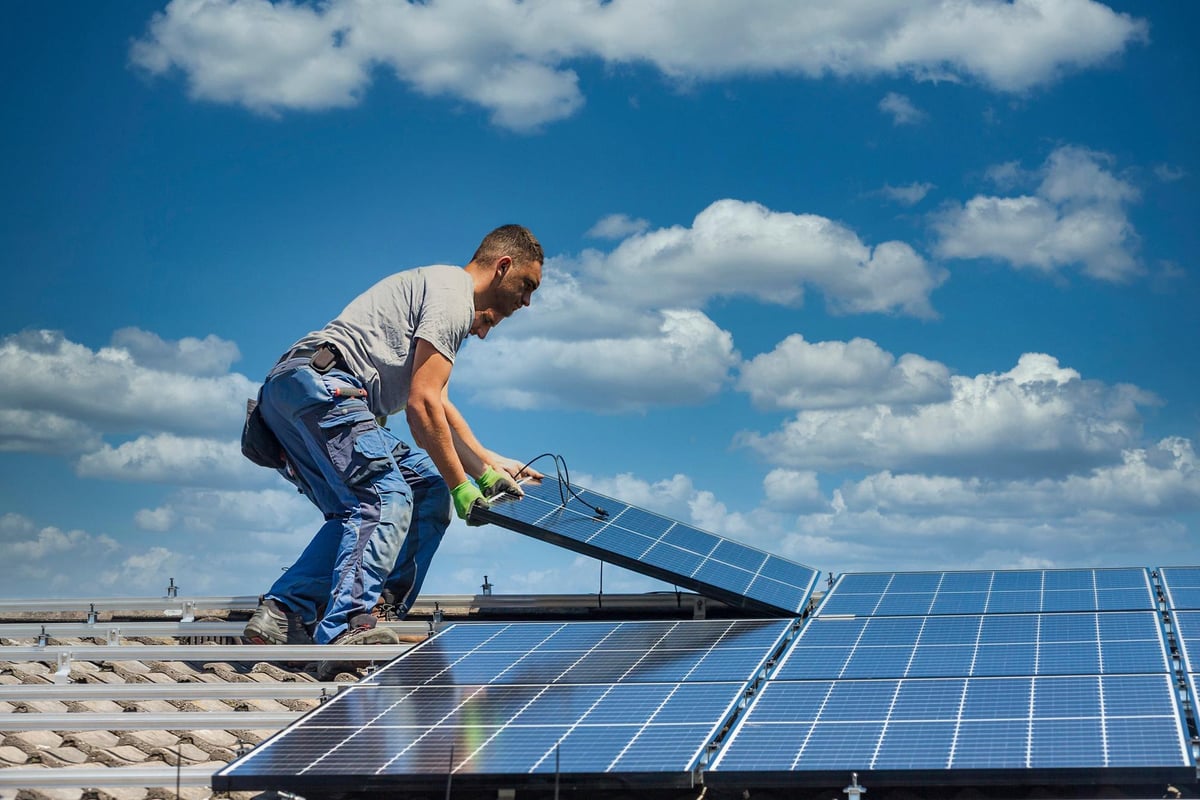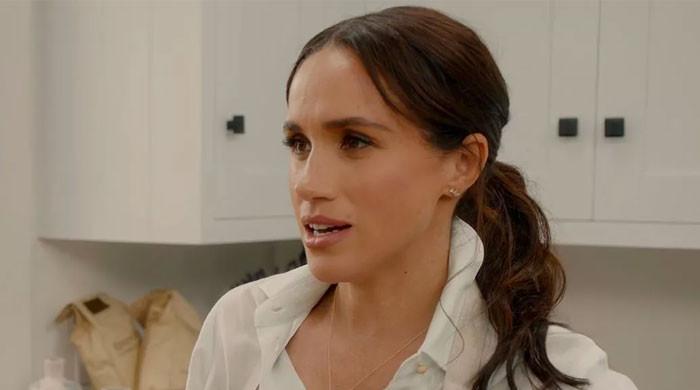Environment Going green: Be energy smart and cut household bills by installing solar panels By Angela Terry Published 5th Apr 2025, 08:06 BST Solar panels - smart move (photo: Adobe) Is now a good time to install solar panels on my home as I want to reduce my energy bills and help the planet? With energy prices reaching an all-time high and the urgent need to cut our use of fossil fuels, there’s never been a better time to install solar panels. Sign up to our daily The Scarborough News Today newsletter Sign up Thank you for signing up! Did you know with an ad-lite subscription to The Scarborough News, you get 70% fewer ads while viewing the news that matters to you. Learn More Sorry, there seem to be some issues.
Please try again later. Submitting..

. This site is protected by reCAPTCHA and the Google Privacy Notice and Terms of Service apply. Solar power is one of the most effective ways to reduce your carbon footprint.
In fact, a typical system could save one tonne of carbon per year, depending on where you live in the UK. That’s the equivalent of driving 3,600 miles, or from London to Bristol 30 times. Visit https://energysavingtrust.
org.uk/advice/solar-panels/ website. Advertisement Hide Ad Advertisement Hide Ad Falling prices and the government incentives on offer mean that installing solar power is no longer just for the well off – it could be a really smart financial move for many homeowners or businesses.
Solar panels can save you money Energy prices have skyrocketed in recent years, leaving many struggling to pay their bills. Installing solar panels allows you to rely less on the Grid for your power and instead generate your own electricity. In fact, some homeowners see reductions of up to 70 per cent on their electricity bills, depending on their energy usage and system size.
One of the biggest barriers to solar-panel adoption has historically been the upfront cost but government incentives are making it easier to make the jump. Advertisement Hide Ad Advertisement Hide Ad One of the best is the ‘Zero VAT’ scheme, which was introduced in 2022 and will last until at least 2027. This means you don’t have to pay the usual 20 per cent VAT on the cost of solar panels or their installation.
The Smart Export Guarantee (SEG) allows homeowners to sell any excess electricity generated by their solar panels back to the grid. Rates vary between energy suppliers, but this provides another way to make a return from your investment. Solar panels are also becoming an attractive feature when buying a home.
Having them installed can boost your home’s value by as much as 4.5 per cent as studies show that homes with solar panels tend to sell for more than those without. Also, installing solar panels can improve your property’s Energy Performance Certificate (EPC) rating, which can mean cheaper loans through access to green mortgages and other financial products.
Advertisement Hide Ad Advertisement Hide Ad Solar panels are efficient and driving change If you’ve investigated solar panels in the past and been put off by the cost, it’s time to take another look. Prices have dropped dramatically over the last decade. Typically, a 4kW system suitable for a two or three-bedroom house costs around £6,000 to install.
If you want a battery it will increase the cost considerably but this really isn’t necessary. At the same time, improvements in technology mean modern panels are much more efficient, generating more electricity during the day, even in cloudy weather. Battery storage technology has improved too, allowing homeowners to store excess power for use when the sun isn’t shining.
While battery storage is an additional cost, prices are coming down. Alternatively, you can charge your electric car battery from the panels to ensure cheap, clean motoring. It’s critical that we dramatically cut down on our use of fossil fuels to address the climate crisis, and every UK home that switches to generating their own renewable energy makes a difference.
So, if you’ve been interested, now is a great time to look to go solar. Advertisement Hide Ad Advertisement Hide Ad You can read about one homeowner’s experience of installing solar in this great case study on the charity One Home’s website. Celebrity spot Actress Dame Judi Dench is a lifelong conservationist and tree lover.
She turned her own garden into a personal forest, planting trees in memory of loved ones. She also took part in the 60,000-strong Restore Nature Now march last year, to persuade UK politicians to repair the natural world. Dame Judi, who won an Oscar in 1998 for Shakespeare in Love, said politicians need to "deliver a cure for nature's decline," not "sticking plaster solutions”.
Green swap Swap to fabric or paper bunting and banners instead of balloons at your next party. Banners are reusable and often recyclable, while even biodegradable balloons take months to break down when the party’s over, endangering birds, fish and other wildlife. How climate change is affecting our air quality Air pollution caused by burning petrol and diesel is a growing problem and while the government has created clean air zones and set carbon emission targets, much more action is needed to protect us from toxic air.
Advertisement Hide Ad Advertisement Hide Ad Rising temperatures, extreme weather patterns, and air pollution are creating a dangerous environment for people with respiratory conditions like asthma and hay fever. The problem is particularly bad in towns and cities where vehicle and industrial emissions lead to high levels of nitrogen dioxide and particulates in the air. But climate change is making the issue even worse.
Warmer temperatures are leading to high levels of ground-level ozone, a key component of smog that can trigger asthma attacks and other respiratory issues. Also, prolonged heatwaves, which have been made more frequent by climate change, can lead to stagnant air conditions that trap pollutants in the atmosphere. Advertisement Hide Ad Advertisement Hide Ad This means we experience long periods of poor air quality and vulnerable groups like children, the elderly, and people with pre-existing health problems, are left most at risk.
Higher humidity levels and warmer temperatures are also creating ideal conditions for mould growth indoors, which can also trigger respiratory problems. And more frequent wildfires in the UK and in Europe are sending smoke particles across the continent. This trend is expected to continue as climate change fuels more extreme weather events.
The hay fever epidemic Hay fever sufferers will know that they’ve had it particularly bad in recent years and research from the UK Health Security Agency shows that environmental factors will make the problem even worse in future. Advertisement Hide Ad Advertisement Hide Ad Climate change is extending the pollen season, and rising temperatures and higher carbon dioxide levels are causing plants to produce more pollen over a longer period. According to Allergy UK, one in four adults in the UK are affected by the condition, but research conducted in 2020 showed that 49 per cent of people reported suffering from hay fever symptoms.
Visit https://www.allergyuk.org/about-allergy/statistics-and-figures/#:~:text=Allergic%20rhinitis%20is%20the%20most,/%20Kleenex®%2C%202020 ) website.
How to protect yourself 1. Keep your windows and doors closed – Maybe not ideal if the weather is hot, but the best way to keep pollen and other pollutants out of your home is to stop it drifting in through open windows. Advertisement Hide Ad Advertisement Hide Ad 2.
Wash your face and hair – Pollen sticks to your hair and facial hair so it’s a good idea to wash when you come inside after being outdoors. 3. Use a high-efficiency air filter – air purifiers can be really effective at filtering out pollen and improving interior air quality.
4. Monitor air quality indexes – you can check air quality in your area by visiting DEFRA’s air pollution forecast. The BBC weather app also provides up-to-date pollen count information for specific locations.
Fact or fiction “There were more climate disasters in 2024 than ever before.” FACT. Advertisement Hide Ad Advertisement Hide Ad According to the UN’s World Meteorological Organization, more than 150 unprecedented climate events took place in 2024, displacing more than 800,000 people.
This is the highest yearly number since records began in 2008. Continue Reading Related topics: Judi Dench Bristol London Energy Prices VAT Air pollution.
Entertainment

Going green: Be energy smart and cut household bills by installing solar panels

Is now a good time to install solar panels on my home as I want to reduce my energy bills and help the planet? With energy prices reaching an all-time high and the urgent need to cut our use of fossil fuels, there’s never been a better time to install solar panels.














